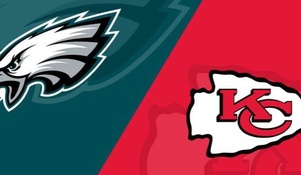The NFL Needs to be More Action and Less Talk Against Domestic Violence
Domestic violence occurs much too often in society, but in recent years the NFL especially has seen a drastic rise in the number of cases involving its athletes. Some of these include Greg Hardy, Ray Rice, Adrian Peterson, and most recently Giants Kicker Josh Brown. For those not familiar with the Hardy or Peterson cases, Hardy was brought up on charges of abusing his ex-girlfriend, and Peterson was charged for child abuse. Rice’s case, which was the most well-known and publicized, revolved around video footage of him hitting his then-fiancé in an elevator.
The Josh Brown case is the most current as some events of the investigation took place as recently as the summer of 2015, during which Brown was arrested for domestic violence. In the past year following that arrest, various personal journals and letters written by Brown have been released to authorities. In these personal accounts, Brown openly admits to abusing and being physical with his wife on multiple occasions for many years. The following ESPN article gives a more detailed account of the evidence submitted by Brown. The article also includes accounts from Brown’s then-wife, Molly, of abuse from 2015 and prior.
[Giants' Brown in journal: 'I have abused my wife']With such overwhelming evidence of domestic violence, you would think punishing Brown would’ve been easy for the NFL. However, their response to the incident in 2015 was an insignificant 1-game suspension to start last season. Now one year later, after the journals have become available, the NFL has re-evaluated the case and Brown has since been suspended indefinitely and released by the Giants. The disturbing part about all this though is that it took the NFL an entire year to make this decision, and for an entire year, they allowed a domestic violence violator play on Sundays and wear their brand. It is also disturbing to think that the Giants re-signed Brown this past summer, knowing that he had a past of domestic violence.
Therefore, the question overshadowing all of this is why Brown was still in the league up to a few weeks ago and not suspended indefinitely back in 2015?
When questioned by the media about Brown’s investigation both last summer and this season, the NFL and New York Giants Front Office both responded to this question by claiming they acted on the information available to them. In 2015, the 1-game suspension was given based on the facts available, and now, as new information has come to light, the punishment has since been re-evaluated and increased. More of this response can be read in the following Washington Post article.
[NFL places Giants' Josh Brown on paid leave, weighs another suspension]Giants owner John Mara also spoke, and what he said was heavily criticized by the public. In his statement, Mara mentioned that Brown was kept on the team and re-signed even though he had told the Giants of his abuse incidents. Mara said they didn’t take action because they were not sure of the extent of the abuse, and therefore did not want to make any assumptions and take unnecessary action. These comments angered the public because it stimulated the idea that Mara only punishes domestic violence situations of a certain degree, while minor incidents get overlooked.

Those outside the Giants Organization and the NFL would say Brown was kept around because the NFL’s domestic violence policy is too inconsistent and passive, and the NFL doesn’t represent the things they say they stand for. For example, following the Ray Rice case, NFL Commissioner Roger Goodell implemented a 6-game suspension policy for those involved with domestic violence. According to a New York Times article written by Ken Belson and Bill Pennington though, this rule is rarely followed. In the article is states that “just 3 out of 10 players who have potentially been affected by the rule have received a suspension of that length and because of mitigation processes, most players are only suspended 2 or 3 games.” This statement rings true as Greg Hardy initially got a 10-game suspension but was able to get it lowered to 4. Then there is Josh Brown, who gets a 1-game suspension even with the accounts from his wife, and then an entire season later finally gets the harsher punishment he deserved.

So now, with knowledge of this policy, the new question becomes why didn’t Brown originally get this 6-game suspension, and expands to consider why we are settling for just 6 games and not more?
Judy Harris Kluger agrees with this concern, as she states in a New York Times article that the NFL needs to develop a quicker and firmer action to these instances, especially since, at this point, they have so much experience with it due to prior cases.
Other athletes around the league have also spoken out about their displeasure with the NFL’s domestic violence punishment habits, including Baltimore Ravens wide-receiver Steve Smith Sr. Smith has a past with domestic violence, as his mother was a survivor, and so he is rightfully passionate against it. In response to the release of Josh Brown’s journals where he admits to his abuse, Smith used Twitter, as seen below, to express his dissatisfaction with Brown’s actions and to voice how he would handle the situation. Smith is not the only one to express his anger with the fact that Brown was still allowed to play, as other anonymous owners and players have spoken out as well.

Domestic violence is a sensitive topic for everyone, but it is one that should be taken very seriously. Regardless of who is involved, domestic violence needs to be punished harshly to deter its re-occurrence. While the NFL hates to punish its athletes at the risk of losing fans, these athletes are role models to kids across the country. Therefore, if we expect to see change in regards to domestic violence, the NFL needs to utilize its platform in a more influential way. I absolutely agree with Smith; if I had a daughter and she was in a situation of domestic violence, I would either want to see some punishment enforced or I would enforce the punishment myself.
I firmly believe that a 6-game suspension is too minimal, and that first-time violators need to be suspended for an entire season without pay. During this time, they need to be attending regular counseling sessions and working on bettering themselves. If they violate the policy a second time, they should receive an indefinite suspension. If these athletes truly love the game as much as they say they do, then these suspensions should be something they want to avoid at all costs. I also think all athletes should go through a few relationship counseling sessions each season just to make sure all is good at home.
In this day and time, in order to see change, you have to make a change and that is what the NFL needs to do. Fans aren’t happy and so it’s time to do something that they can get on board with.






